A Widow’s Guide To Coping With Valentine’s Day
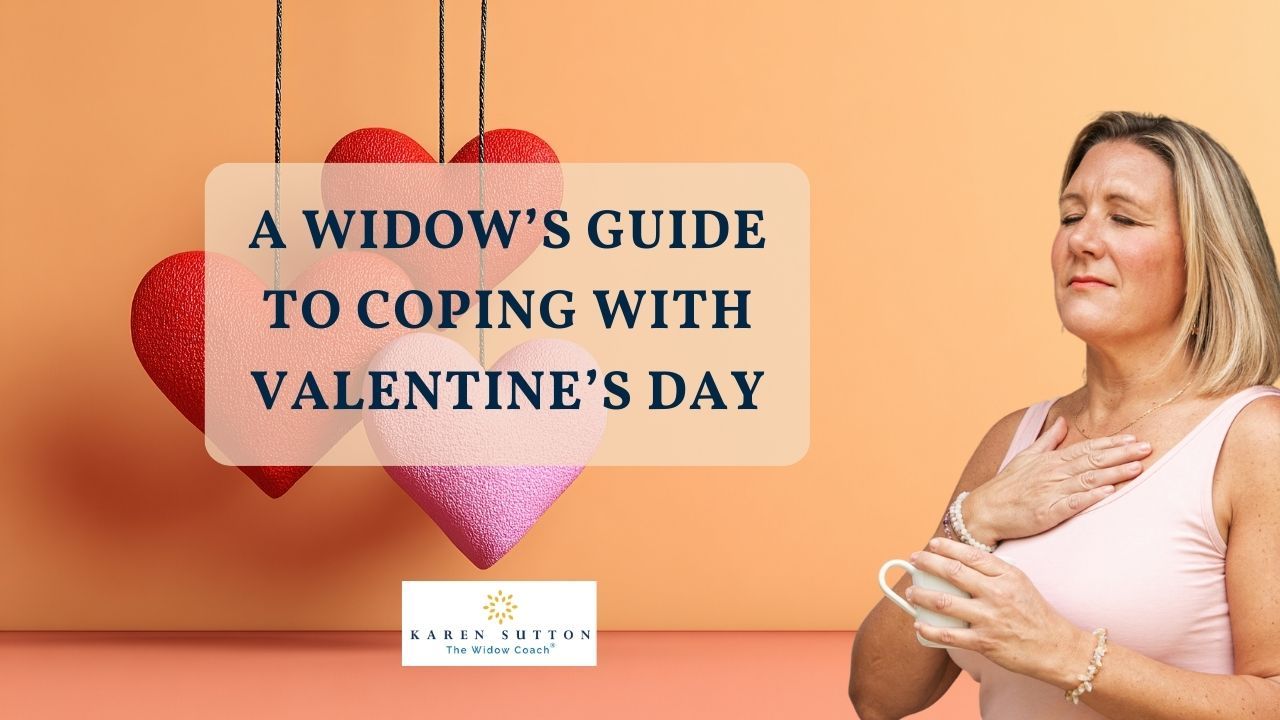
There are certain days in the year that feel especially challenging as a widow. Birthdays, holiday festivities, anniversaries - and Valentine’s Day.
Whether we’re avoiding the card aisle in the supermarket, skipping over the romantic dramas on television, or turning down the Valentine’s playlist on the radio, this time of year can feel like hard work. Surrounded by happy couples in love, Valentine’s Day and the lead-up to it can highlight our loss, deepen our pain and cause us to retreat further within ourselves.
In this blog, I’ll explore why Valentine’s Day often feels particularly challenging, why the emotions that surface during this time are valid and how we can learn to support ourselves through this difficult date.
Why is Valentine’s Day so tough for widows?
1) Bad timing
We’ve just about survived the winter holidays. Christmas and New Year are behind us and we’re nearly through the darkness and gloominess of January. And just as we feel ready to start venturing ou...
Managing grief - a widow's guide to facing the new year
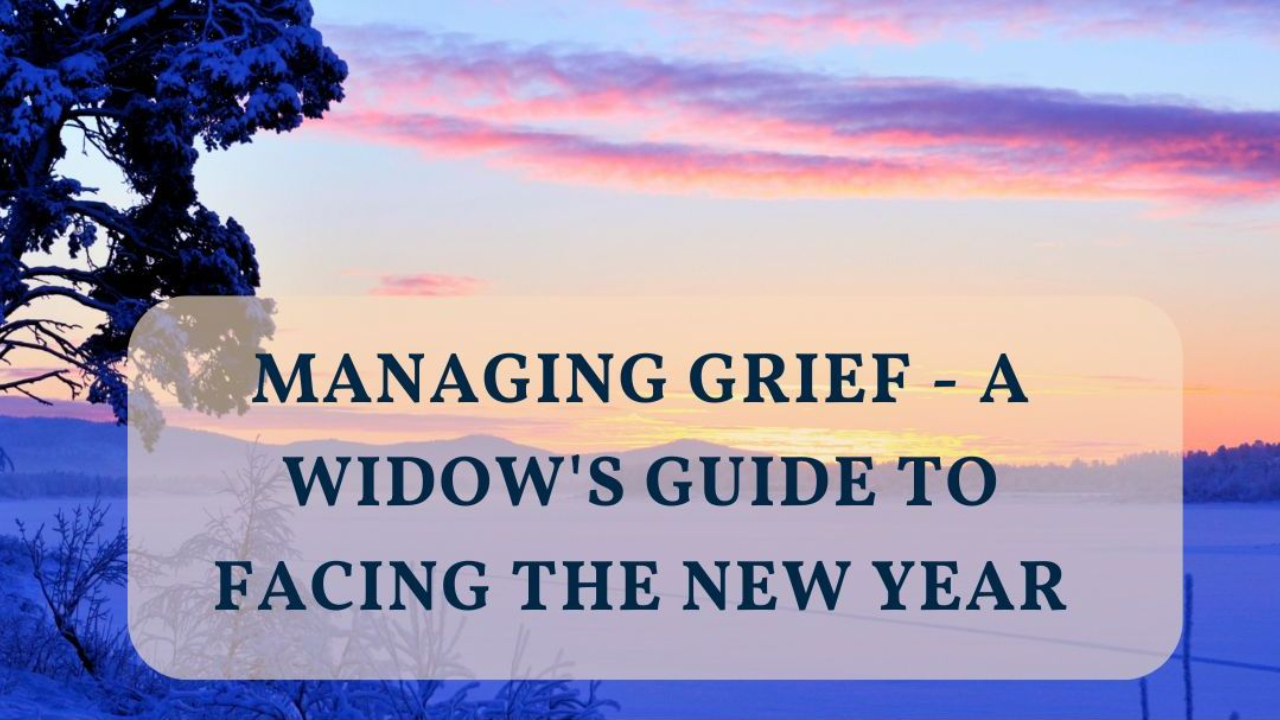
As widows, the holiday season can feel really tough. Exuberant faces revelling in the joy, hope and optimism that this time of year brings, can sit sharply in contrast to the pain and emptiness we feel.
Whilst we may have made it through Christmas unscathed, hibernating when we can and choosing how, when and with whom we engage, the beginning of a new year brings with it its own pressures.
As the invites to New Year’s Eve parties roll in, so do the expectations to look forward, make plans for the coming year and set bold resolutions. And yet, as widows, this is the very last thing we want to do. For, as we sit with the heaviness of our grief, for many of us, the new year feels unmapped and overwhelming - often reminding us of all that we have lost - our partner, our identity, our security and often our sense of purpose and direction.
So, how do we navigate the new year? As widows, how do we manage the heaviness of our loss and transition into the next year in a more productive...
Coping with the festive party season as a widow
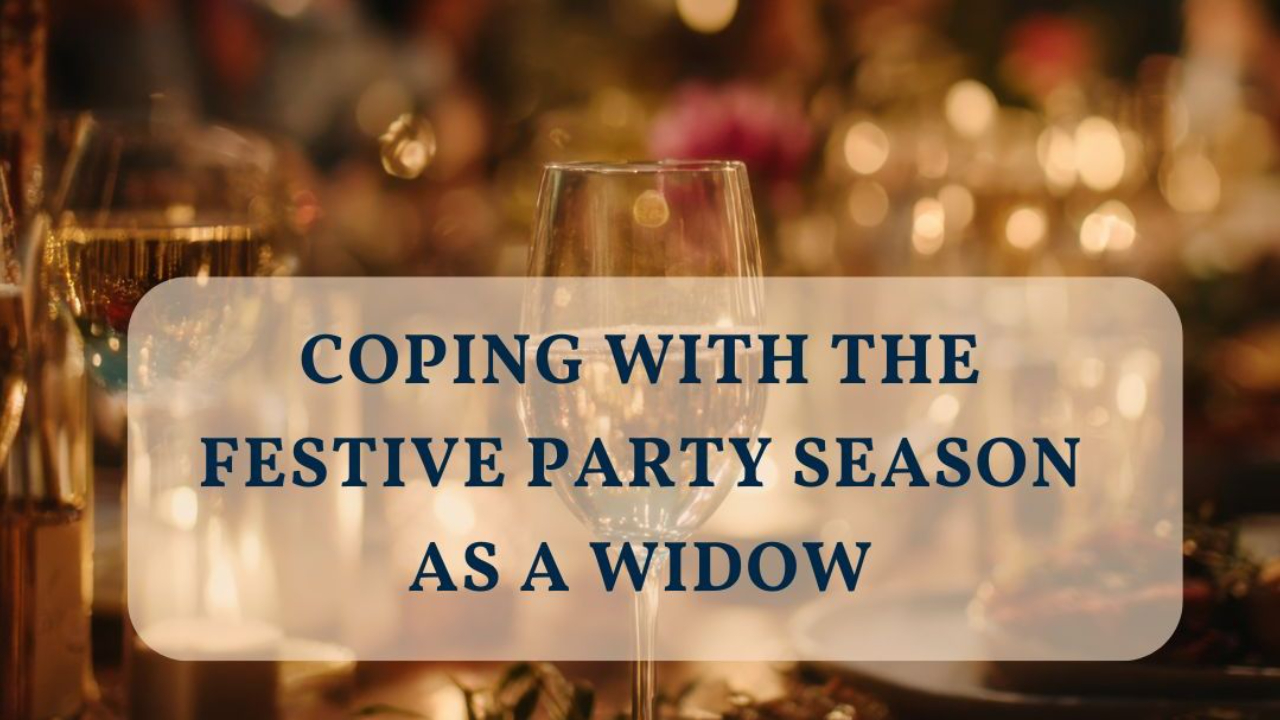
The holiday season is just around the corner and whilst for many people Christmas is a time filled with joy, love, laughter and togetherness, this time of year can be especially difficult for widows. Whether it’s our first Christmas without our spouse or partner or we’re a little further on in our grief journey, the festive period brings our grief into sharper focus and can make us feel more alienated and alone.
So how do we survive the sparkle and show up during the festive season in a way that honours our feelings and ensures we feel comfortable? This blog will explore the predicament that confronts widows over the Christmas and the New Year period and provide some tips that may help us navigate this difficult time with greater peace and authenticity.
The dilemma we face
As Christmas rolls round, with it comes a slew of holiday traditions including the steady stream of invites to various Christmas get-togethers - from office parties to Christmas Eve drinks and gift-giving evenings...
4 Ways to Embrace Hope and Healing in Widowhood
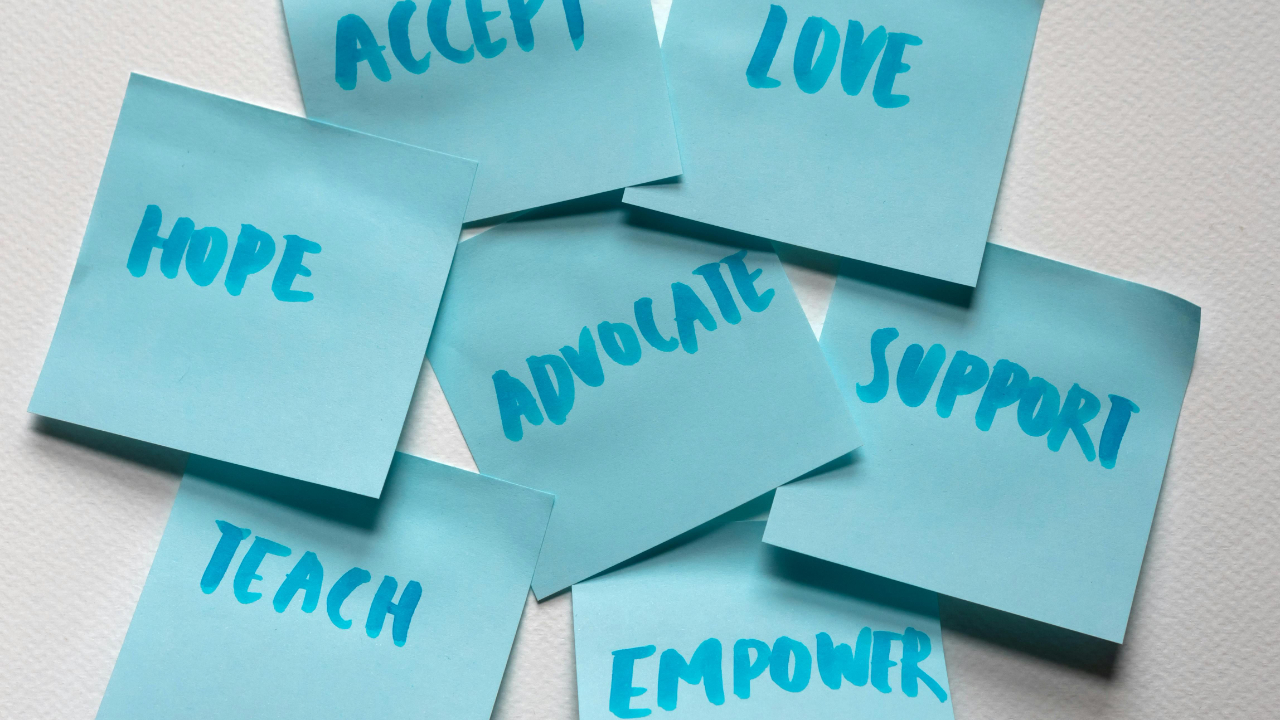
The loss of a life partner can catapult us into a world of unrelenting pain and enormous uncertainty. As we’re forced to navigate this new and intensely overwhelming chapter of our lives, just surviving can feel impossible let alone the idea of embracing hope and healing in widowhood. But as difficult as healing, indeed surviving can feel, it’s our responsibility - and ours alone. No-one else is going to do it for us. And so no matter how fractured and devastated we feel, at some point we need to confront our grief and work through it.
Although grief is a uniquely personal experience and everyone navigates it differently, there are things we can do as widows that will accelerate our journey towards hope, healing and happiness. In this blog, I’ll identify four of these strategies and explore how they can help us to ease our grief and re-engage with life once more.
Taking charge of our grief is not easy. It requires immense strength, resilience and courage. But if we choose to tackle ...
A Widow Pep Talk - It's Time to Celebrate Our Wins

Christmas can be an exceptionally difficult time of year for widows. Being surrounded by families celebrating the festive season can inflame our grief and re-awaken painful memories of happier times that we used to spend with our partners. Receiving cards from others filled with their highlights of the year just gone, or social media notifications of people’s plans for the future can simply reinforce our loss and remind us of the future with our loved one that we had mapped but will never now enjoy. It’s therefore common for many of us to take a few steps back in our grief journey over the Christmas period, as we become overwhelmed by the acuteness of our loss.
So with this tricky holiday season fast approaching, I wanted to give you a little pep talk - a few short words of encouragement that will help you realise how courageous, inspiring and incredible you are. I want us to be able to reframe Christmas so that it becomes a time of positive reflection, an opportunity for us to celeb...
Coping With Grief at Christmas - Eight Tips for Widows

Christmas can be one of the hardest times of the year for widows or those grieving the loss of a life partner. Whether we’re feeling pressure to conform to Christmas traditions, masking our grief at family gatherings, or avoiding insta-perfect stories celebrating love, hope and happiness - Christmas can be fraught with unexploded grief bombs. So, here are my eight top tips for coping with grief at Christmas.
- Avoid comparisons
In today’s social media obsessed world, the appetite for visually perfect Christmas content has become overwhelming. And around this time of year, Christmas comparison culture really kicks into gear. As our social media accounts are filled with beautifully decorated Christmas trees, happy families taking trips to incredible winter wonderlands and clips of feel-good Christmas movies, this can exacerbate our grief and loneliness.
However, it’s worth noting that whilst it might appear that everyone around you is enjoying a fun-filled, festive holiday, behind ...
Glimmers in Grief: How to Find Moments of Joy in Loss

During grief, we’re engulfed by trauma. Our nervous system goes into overdrive and our days are consumed with fighting grief triggers. From hearing our loved one’s favourite song to stumbling upon an old shirt of theirs, grief triggers can ignite cherished memories that are painful and difficult to process.
However, the concept of ‘glimmers’, introduced by world-leading trauma expert Deb Dana, could prove game-changing in our battle against these triggers and could reshape our grief journey. Often framed as the opposite to triggers, glimmers can help us to find small moments of joy in loss, strengthen our resolve and provide our nervous system with some much-needed relief.
What are glimmers?
Glimmers are not lengthy periods of unbridled euphoria. They are instead, as Dana describes in her 2018 book, ‘The Polyvagal Theory in Therapy’ “micro moments” of peace, happiness or magic that may occur throughout the day - moments which can spark positivity and help us to stay grounded, pre...
Navigating Relationships With Others After Loss

When we lose a loved one, our world goes into a tailspin. We lose our sense of reality and purpose and often struggle just to exist day-to-day. During this phase of raw grief, it’s natural to lean on those around you, to rely on friends, family and colleagues for emotional and practical support. However, navigating relationships with others after loss can become challenging because as our world shifts, our perspective on life changes and this can alter the dynamics of our relationships with others.
Some people - perhaps those we least expect to - will step up. Others however may withdraw, or not show up in the way we expect or need them to. This can feel earth-shattering and compound our existing grief, as we’re left to process this loss as well as the passing of our loved one. It can leave us feeling rejected, angry - even betrayed and it can profoundly alter our ability to trust and invest in others.
This blog will explore why our relationships with others can feel different whe...
Navigating the New Year - A Guide for Widows

As the clock ticks down to midnight on New Year’s Eve, people across the world are filled with a sense of anticipation and excitement. For them, the beginning of a new year marks a fresh start, a chance to celebrate with loved ones and look forward to the future with renewed optimism. However, for widows, the new year can be a really difficult time. It brings into sharp focus all that we’ve lost, reminds us of the future we’ve been robbed of and can accentuate the pain, despair and loneliness we’ve spent the year battling through.
In this blog, I’ll provide widows with a few practical tips on how they can navigate those tricky last few days of December and step into the new year with more confidence, purpose and a greater sense of peace.
#1 Lean into your emotions
When we lose a life partner, the new year can set us apart from others. As they look forward to the coming year and all the hope, opportunity and excitement that it brings, we are weighed down by the heaviness of our grie...
The Five Stages of Grief - Why It’s Time to Debunk The Myth
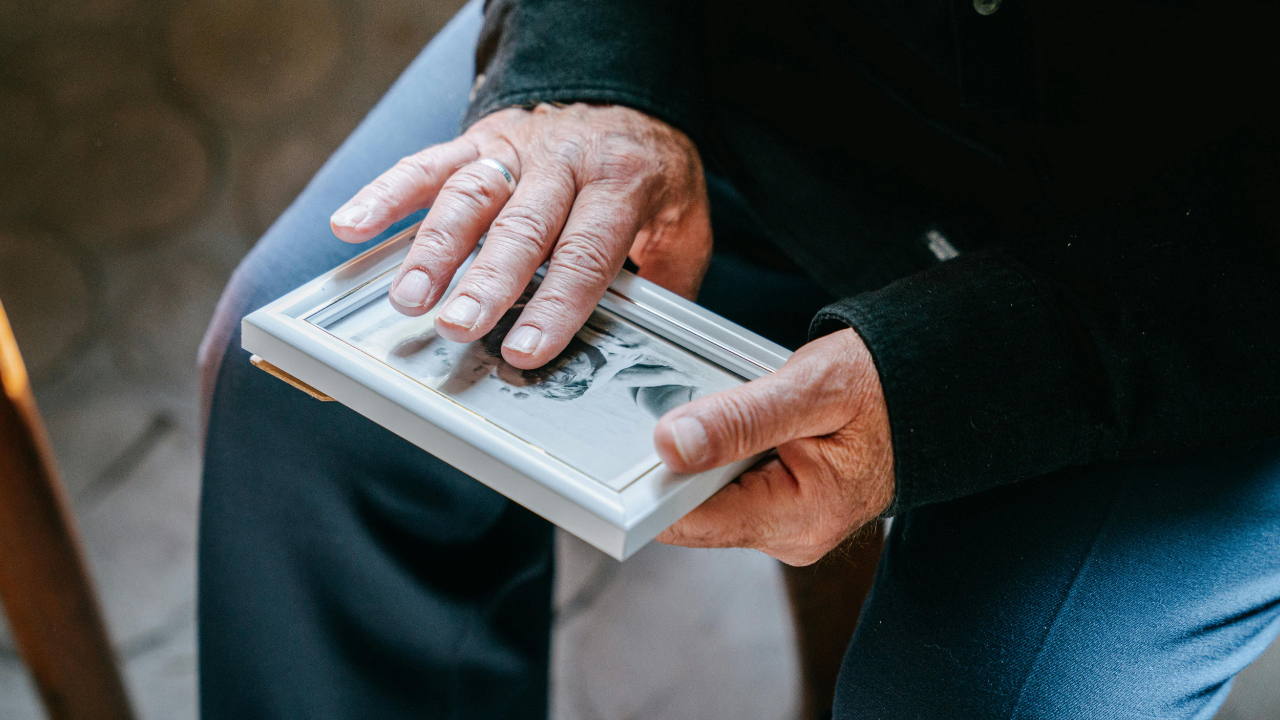
Over the years, one of the most commonly accepted theories for understanding grief has been ‘the five stages of grief’ - first outlined by Swiss-America psychiatrist, Dr Elizabeth Kubler-Ross in her 1969 book, ‘On Death and Dying’. The theory suggests that grief can be understood as a series of sequential emotional stages that we progress through as we confront loss. It’s a theory that has become ingrained in our cultural consciousness and is widely regarded as the go-to instruction manual for processing our feelings of grief. However, this blog will outline why the ‘five stages of grief’ has actually been misinterpreted, how it could in fact be detrimental to our grief journey and how other models may better explain our experience of loss.
What are the five stages of the Kubler-Ross model?
- Denial: a stage characterised by shock, numbness. We might find ourselves pushing back on the reality of our loss, refusing to believe that we’ve lost someone we love.
- Anger: as our grief pre...

